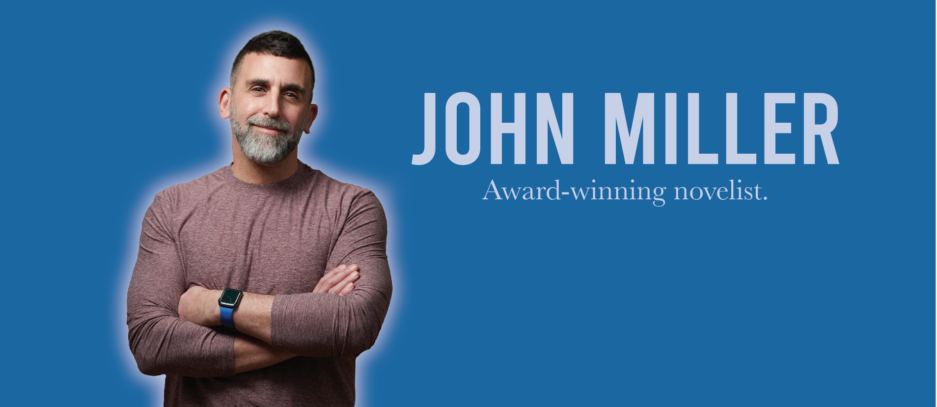 Once, when our family was gathered at my parents’ house for dinner, my brother accused me of being an anti‑social worker. At the time, I worked in what people condescendingly call ‘the helping professions’. His little jab disappointed me; I did inform them, after all, that I had been telling a story. Did they really expect the humdrum reporting of facts?
Once, when our family was gathered at my parents’ house for dinner, my brother accused me of being an anti‑social worker. At the time, I worked in what people condescendingly call ‘the helping professions’. His little jab disappointed me; I did inform them, after all, that I had been telling a story. Did they really expect the humdrum reporting of facts?
I cringe to think how life might be if one were restricted to the whole truth and nothing but the truth. A good story, well constructed and passionately told, is like a salve applied to the day’s trials, made with a simple do‑it‑yourself recipe: take actual events, mix in a few suppressed thoughts and emotions, add a dash of hindsight, and embellish. I realize that this approach demands of the listener a grain or two of salt, and a bit of sympathetic curmudgeonliness. To be fair to my brother, he probably believed that I should be more rigorous than some of our retail or marketing colleagues in adhering to the evidence. Or maybe he simply wished that I were a nicer person.
People in the helping professions are supposed to be forgiving, serene and non‑judgmental. The strain can be excruciating. My relief came later, in the telling. In my stories, I often re-constructed myself as ruthless, cantankerous, or belligerent. And because my family saw my work only through my narrative, perhaps they worried that I was unkind to the vulnerable people with whom I worked. Or that I might be dangerous, a step away from a psychotic break.
My brother charged me with anti‑social work behaviour because I had told a story about a colleague, recast through a lens of exaggerated unsympathetic thoughts. But—poor guy—my brother always took me too literally. He should have known that I liked to blur my thought bubbles with dialogue bubbles. My mother saw only failed parenting. “He used to be such a sweet boy,” she lamented to my father, her voice trailing off, her mind adrift in the dull‑but‑calm sea of my childhood.
They might have been less distressed if they’d stopped to consider the multiple benefits of a good story: its entertaining and diverting properties, for instance, or how it can cement the experiences of one’s life firmly into long‑term memory. They might have been comforted if they’d embraced its value as therapy. A story can ensure that the teller’s angry impulses stay quelled, that he or she stays employed and out of jail. Thinking about storytelling in the midst of a sad or awkward moment can also soothe. No matter how bad the situation, if you can ride it out, it might become material.
Today is a good day. Nothing too awful has happened, and I even have something humorous to report when a good friend calls. After I’m done, I ask her if she has any good ones for me. And so our routine has developed, leading us to ruthless dissection and rating of content and delivery. How gripping, how hilarious, how juicy—these qualities are all critically assessed. Sometimes we’ll classify: work, family, relationships, gossip.
In the gossip category, most prized of all, there are rules that help us to justify our pettiness. It must be acknowledged, proudly, that the facts came to us at least second hand, and are unreliable. The pressure is tremendous, but it keeps us fresh. Once it became so great that it led my friend to cheat. I had to call her out: what she’d just told me didn’t qualify as gossip, since the events happened to her, and could therefore be confirmed. We were both terribly disappointed. An hour later, she called back with more sketchy information.
My friend’s sad attempt to turn the events of her own life into gossip brings me to another benefit of stories. They can add a sense of importance to our otherwise unglamorous lives, especially if told and retold. Furthermore, while affirming that we are consequential, they weave perspective through good and bad. They fold humility into our successes, sprinkle laughter over failure. They can even plant hope in the depths of tragedy.
Lately, I’ve been wondering what my storytelling ancestors in Eastern Europe would have said about my approach to their age‑old oral tradition. Would they criticize me for not being elegant enough in my descriptions? For not emphasizing cryptic or multiple meanings? For being too liberal with my dispensations? Would I be found guilty of fast‑food storytelling, doling out McNuggets, instead of looking for the real, golden ones?
Maybe so, but I can’t resist the pleasure of pausing occasionally, and leaning in close for a hunker‑down, give‑us‑whatcha‑got, good old‑fashioned yarn. And for heaven’s sake, I won’t expect accuracy from you, if you don’t demand it of me.
